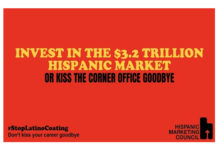In this week’s guest column, employer brand specialist and diversity champion Steve Keith, explains why and how employers can improve their diversity and inclusion (D&I) recruitment strategies to better engage and recruit LGBTQ+ talent.
“That’s not a priority for us right now”… is without doubt a response heard in many leadership conversations focused on building more diversity and inclusion into recruitment strategies. It’s something I often hear when attempting to shift the spotlight onto the LGBTQ+ community at any other time than Pride season. For too long the default – and accepted – approach to engaging this vibrant and incredibly diverse group has just involved pink washing a corporate logo with the Pride rainbow flag.
In fact, LGBTQ+ candidates, particularly those aged 16-24 years, believe efforts to engage them are tokenistic (82%) and limited to just one month per year (68%), as reported by the Gay Times/Kamarama in 2020. Additionally, just 13% of employers are currently working towards diversity targets against sexual orientation; and only 6% towards transgender targets, according to the Institute of Student Employers. We can and should do better.
UNDERSTANDING LGBTQ+ TALENT
Why? When we say something is not a priority to any community, we risk sharing a message that we do not have time for them. There are many members of the LGBTQ+ community that identify as female. In fact, this week we celebrate Lesbian Visibility Week. There are also folks who identify as being a person of colour; UK Black Pride being one of many virtual events taking place this year in recognition of this fact.
However, what lies behind the Pride rainbow flag are stories unique to LGBTQ+ people; and therein lies the opportunity for meaningful engagement. Balancing multiple focuses when it comes to diversity and inclusion is difficult, but that does not mean we shouldn’t make an effort. While raising awareness of and supporting this issue is important, the time for action is now. So, how can organisations give LGBTQ+ candidates the attention they need right now and where should they start?

Image credit: Pexels
Focus content on wellbeing and support
The pandemic has, in varying degrees, had a negative impact upon our mental health. Young people who identify as belonging to the LGBTQ+ community have recently shared their experiences of anxiety and isolation; with young Black people reported to have been affected more frequently than their White peers. Additionally the majority of the LGBTQ+ community has seen ‘little or no positive messaging’ directed towards them. Those who are unemployed have also shared their experiences of the barriers they face accessing the workplace, particularly when applying to apprenticeships, confirm organisations like Stonewall.
Safe spaces, such as gay bars and nightclubs have been closed for a large proportion of the last 12 months, leaving the community as a whole feeling disconnected and vulnerable. With homophobic bullying still very much a part of school life, only 27% of secondary school students say they would ‘feel safe’ coming out, according to a study carried out by Diversity Role Models, last year.
Creating content that showcases the inclusive steps that your organisation has made, or are working towards, can help to build confidence and trust in your employer brand. Creating spaces where your staff feel welcomed and add value at work regardless of their background/orientation, will also pay dividends.
Understand who you are trying to attract
Gender norms are increasingly being challenged amongst, and outside of, the LGBTQ+ community. Many young people today do not ascribe to gender stereotypes with non-binary identities being embraced and brought into mainstream media and popular culture. One of the biggest examples of this being the conversation between reality TV contestants Bimini Bon Boulash and Ginny Lemon in the latest season of Ru Paul’s Drag Race UK.
Gay Times also found that almost 50% of young people are also now open to same-sex exploration and relationships, challenging dominant heteronormative concepts of gender and sexuality. Ensuring that simple adjustments to data collection at application are made to include titles such as Mx could, in fact, encourage more candidates to share this information and help you to track and inform future recruitment strategies.
Get comfortable with asking questions and learning
Discrimination, both inside and outside the workplace, is a very real threat to safety for the trans community. Transgender people share stories about the ways in which how they identify makes them feel ‘tolerated’; especially in the workplace. Many mistakes are still being made in the language used and questions asked about them. When intentionally used to incite a lack of tolerance, these can be incredibly hurtful, especially when of a personal nature. However, when mistakes are honestly made, transgender people will often educate on the errors made, welcoming the opportunity to open a positive dialogue.
One way in which many organisations are starting to educate their employees and create spaces where transgender folk are accepted as colleagues is through the use of pronouns; most notably in email signatures and other online profiles.
PROGRESS WITH PRIDE
In short, employers often only have to make small adjustments to make the LGBTQ+ community feel that they too are a priority for the organisation. What might feel like a time-consuming and effort to some, can in fact be the first step towards building a more inclusive recruitment strategy.

AUTHOR BIOGRAPHY
Steve Keith, founder of The Branding Man, is an employer brand specialist and passionate advocate for inclusion and diversity in the workplace. Keith works with employers to create brand experiences that help explain the work that they do, in engaging ways that young people will understand. He is the host of My Career Story, a weekly podcast sharing inspirational career stories and the people behind them. Keith is also the founder of the Queer Student Awards – a new awards celebration recognising students, apprentices and graduates in the UK, who identify with the LGBTQ+ community. Click here for more information.




































